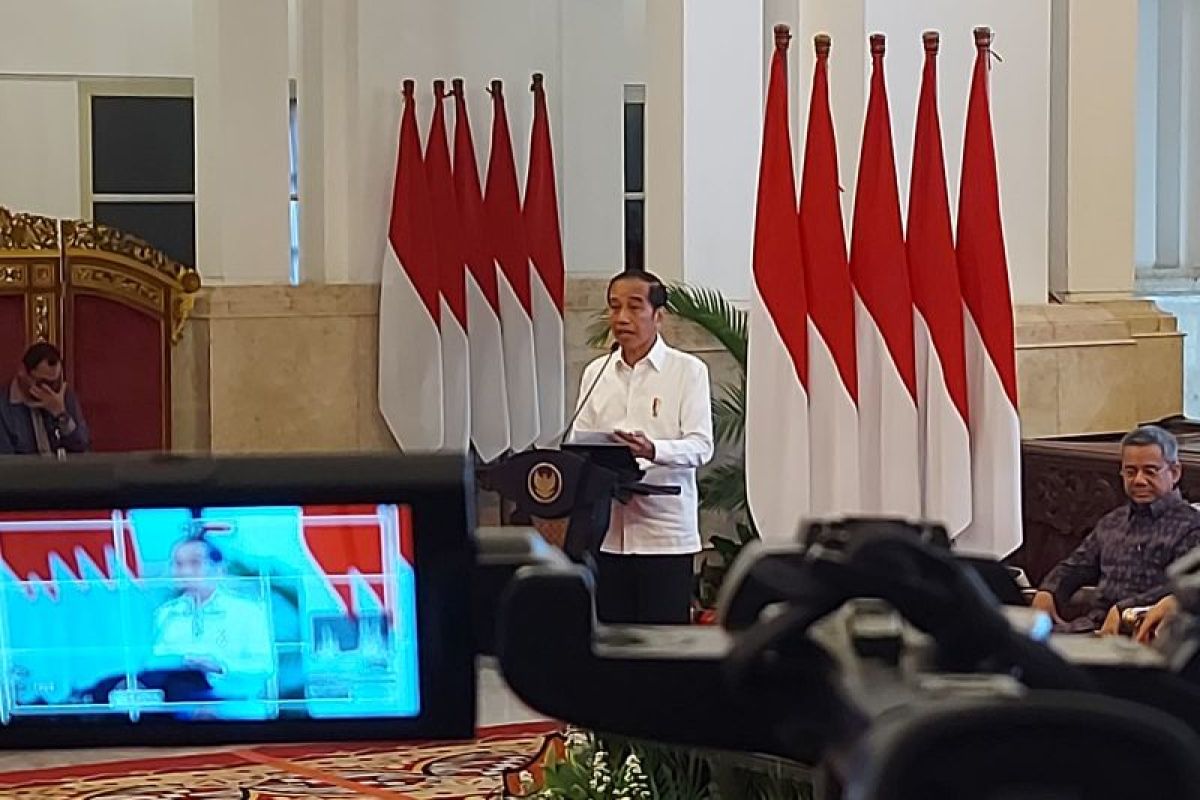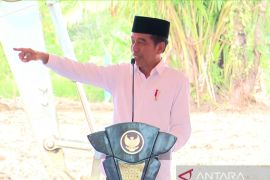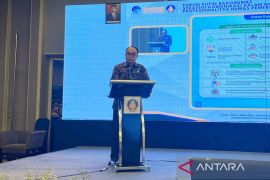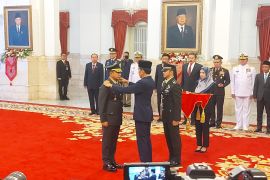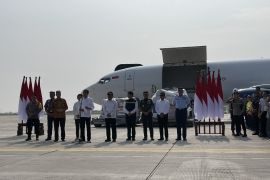"I will directly check it. We must get ready ahead of the dry season caused by El Nino from July to October. The production cannot decrease," the president stated during his speech at the National Coordination Meeting for Inflation Control at the State Palace in Jakarta on Friday.
At the meeting, the head of state ordered the installation of 20 thousand pumps connecting river flows with agricultural land, especially rice.
Jokowi remarked that the Indonesian Defense Forces (TNI) and National Police (Polri) managed the installation of these pumps, totaling 1,400, in several drought-affected rice-producing regions, including Central Java Province.
Speaking in connection with reservoirs as part of the rice irrigation system, the president said he had inaugurated 43 of the total 61 reservoir projects in the last decade in various regions.
Some of the reservoir infrastructure inaugurated included the Tiu Suntuk in West Nusa Tenggara (NTB), Ameroro in North Sulawesi, and the Sepaku Semoi in East Kalimantan.
Related news: Govt intensifies pumping program to overcome El Nino impacts: Minister
"The water must be directly distributed to the rice fields with primary channels and secondary and tertiary irrigation down to the rice fields," he remarked.
The water reservoir is expected to boost the rate of rice production by threefold in one harvest, Jokowi stated.
The management of this infrastructure should also be integrated from the central to the regional governments, he added.
"I want the central and regional governments to carry out their respective tasks so we can realize integrated work," he remarked.
Moreover, Jokowi urged regional governments that have superior agricultural sectors to update their work systems through the application of smart technology.
"We must be able to upgrade our agricultural system to become smart agriculture, especially since we have advantages in our respective regions," he emphasized.
Related news: Indonesia shifts Rp7 trillion budget to help farmers fight drought
Translator: Andi Firdaus, Resinta Sulistiyandari
Editor: Yuni Arisandy Sinaga
Copyright © ANTARA 2024
